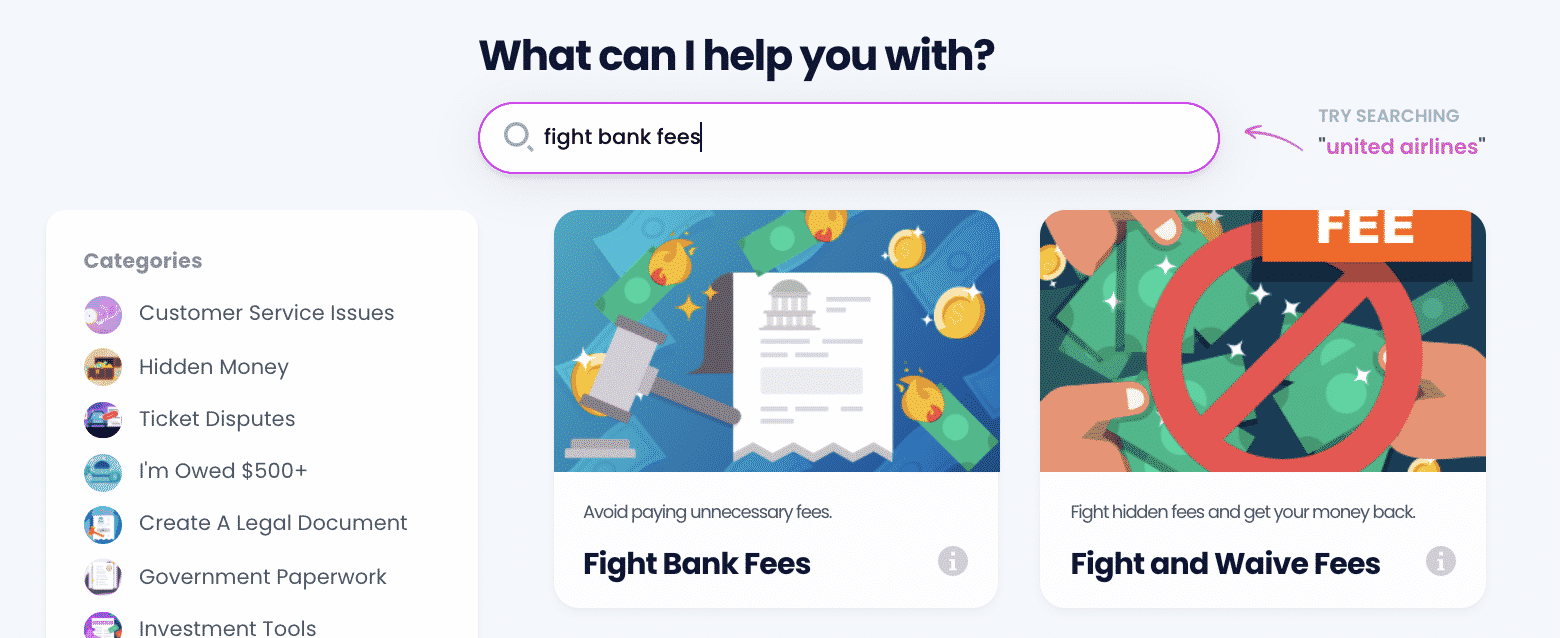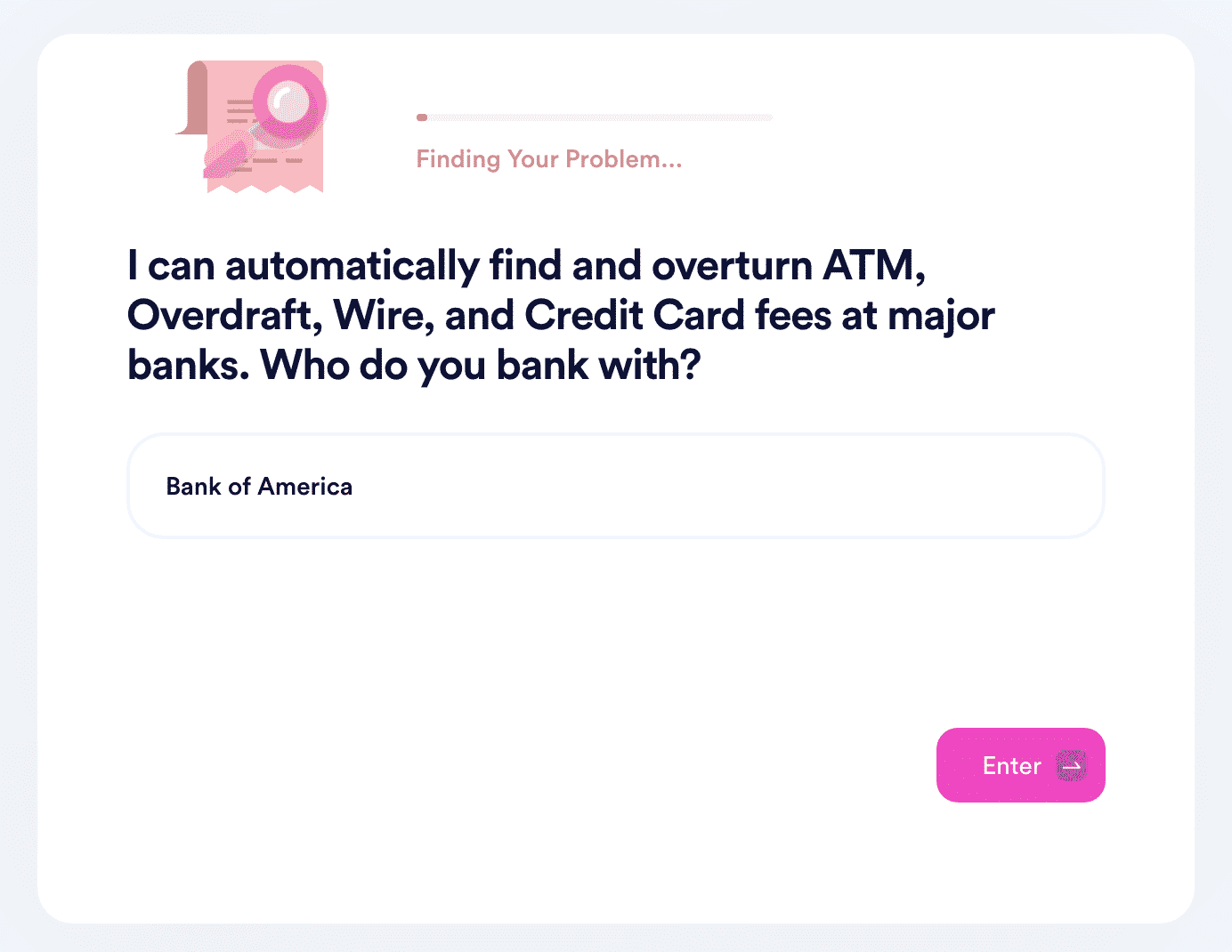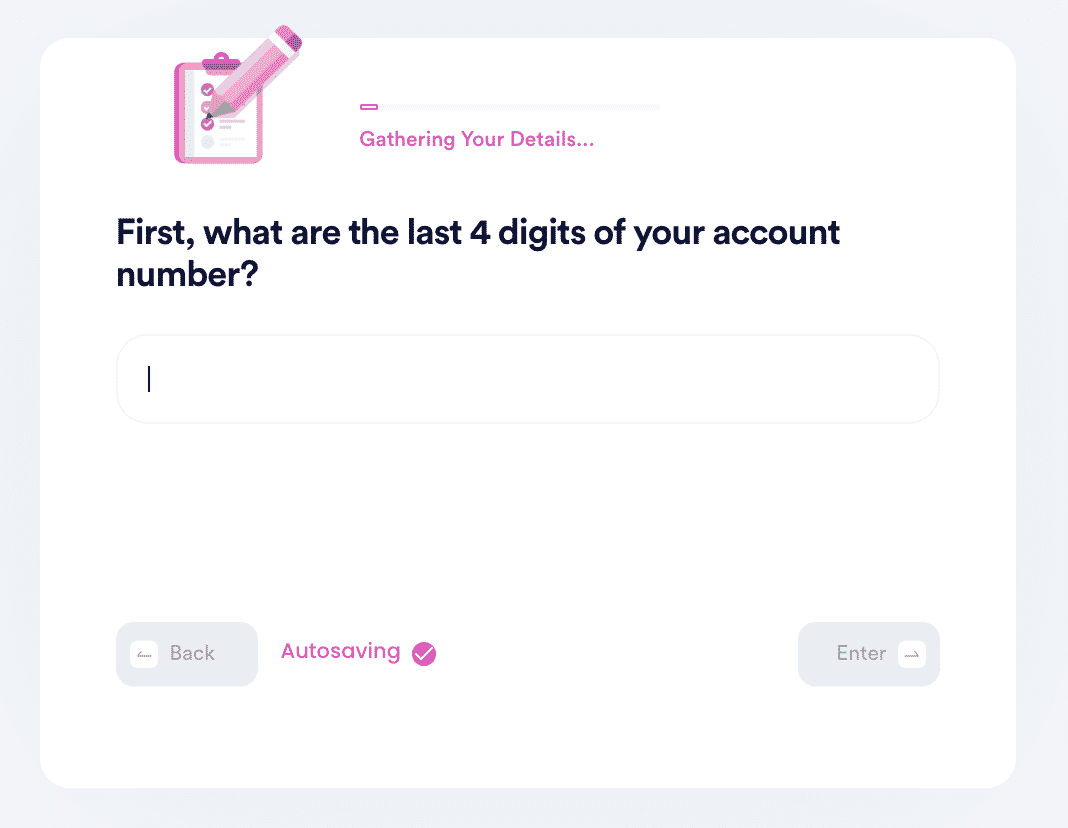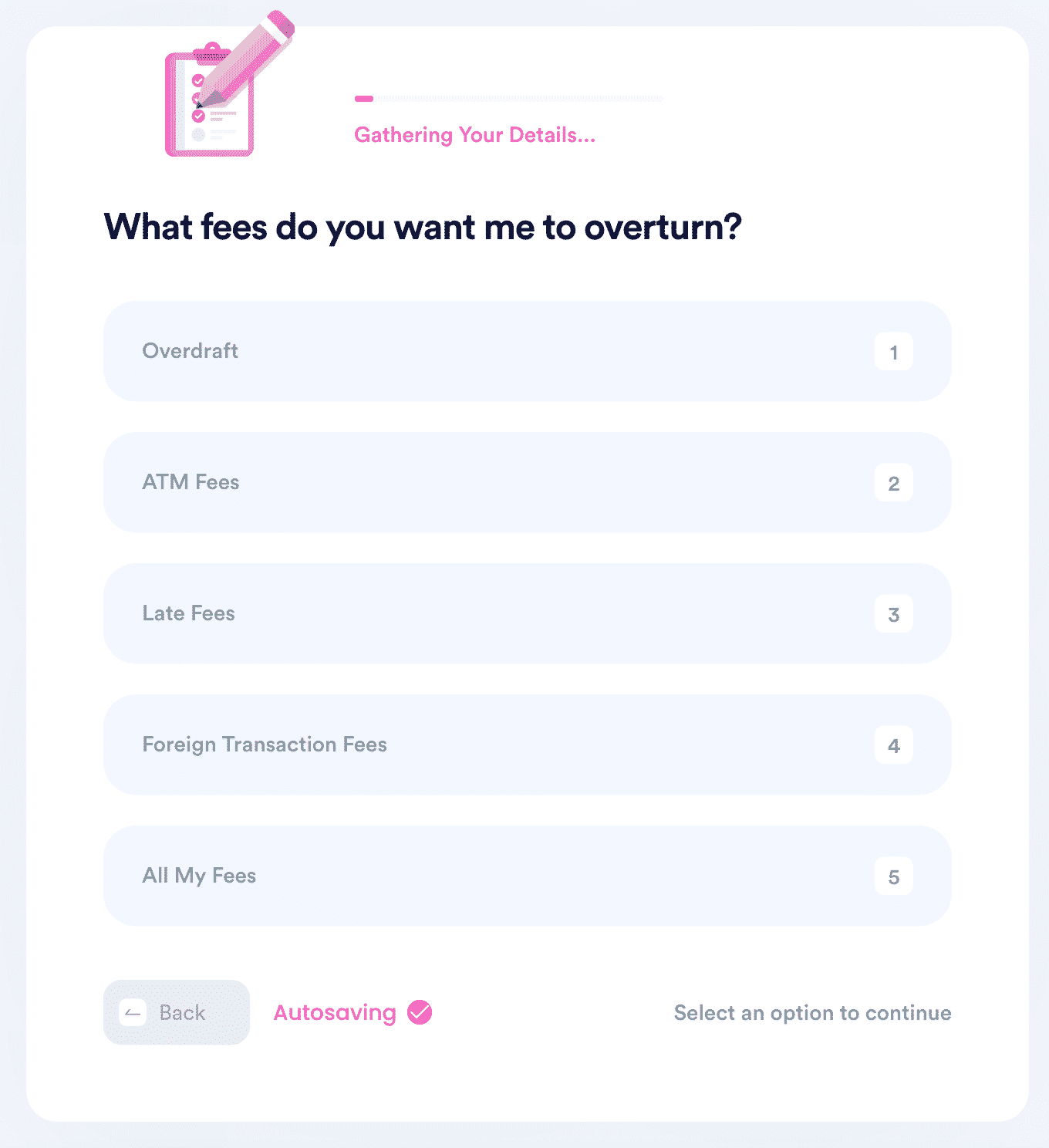How to Fight and Waive Credit One Bank Annual Fee
At least 70% of the US population uses a credit card, with 25% having more than three credit cards. The cards can accrue higher annual fees in exchange for perks and exclusive offers. However, if you don't pay the incurred fees on time, the interest rate will continue to rise, making it expensive over the years.
Although credit cards are a convenient way to manage finances, they can be risky and expensive, especially the annual fee. DoNotPay will help you to waive your .
What Are Annual Fees?
An annual fee is a total amount charged yearly by a financial institution like a bank to its customers to use credit cards. Some of the credit cards with annual fees include:
- Reward credit cards
- Cards with luxury perks
- Secured credit cards
- Card for people with poor credit
- Travel credit cards
The annual fee shows up on your credit card statement as an accumulated amount. The fee is charged the same month you signed up for the card membership. Failure to pay the fees, you risk having your account being suspended or closed.
If the financial institution decides to raise the current fee or impose a new annual fee, you will be given a 45-day notice, by which you have the right to accept or reject the fees. Unfortunately, if you decline the fee, you will have to close the credit card account.
Why Does Credit One Bank Charge Annual Fees?
Below are some of the reasons why Credit One Bank charges annual fees.
1. The Bank is Reducing its Risk
Annual fees protect the bank by lowering the cost of working with people with poor credit scores. The fees help offset the higher cost of serving a customer without a reliable track record of responsibly managing credit.
A client with a positive credit score has many perks, including qualifying for a credit card that doesn't accrue the annual fees, while those with a poor score risk a higher interest rate on their credit card.
2. The Credit Card Has Valuable Benefits
Credit cards provide you with credit on purchases. However, not all cards are equal as they differ in benefits and perks. One prime example of a credit card that provides valuable benefits is the reward credit card.
The card allows you to earn rewards for paying purchases with a credit card. Rewards are earned as a percentage of the purchase made with a credit card. The rewards come in multiple forms, including Cashback rewards, Points, and Airline miles.
Allocating the rewards offered by the bank costs money. Therefore, the institution must charge an annual fee to create a revenue stream to help pay for the reward programs they have sponsored.
What Are the Credit One Bank Annual Fees?
Credit One Bank charges $95 annual fees. The amount is deducted from the available credit in your account. For example, if you have $400 in your credit card account, the available balance will be $305.
The amount is refundable if you have not made any purchases with the card. Below is a table that compares the annual fees from different banks.
| Bank | Annual Fee |
| J.P Morgan Chase | $95 |
| Bank of America | $95 |
| Wells Fargo | $0 |
| Citigroup | Up to $450 |
| US Bancorp | $0 |
What Are the Techniques for Avoiding Annual Fees?
Below are a few options for avoiding paying the annual fees.
- Ask for a waiver. You can call your bank to ask for a waiver. Explain to the bank that you enjoy the benefits but can't keep up with the annual fee. The bank will consider your request based on a few factors, like your credit score. The annual fee can be half or fully waived.
- Request for a retention bonus. Retention bonus varies from person to person and from bank to bank. The retention bonus is when the bank offers you something in return for not closing your account. They can be in the form of a credit statement or points.
- Downgrade your card. Although you will lose some of the card's benefits, you will avoid paying the annual fee. For example, if you were on Credit One Bank Platinum and earned 50,000 points, but it's time to pay the yearly $95, you can call the bank prior and request for a downgrade.
- Cancel your credit card. If your negotiation with the bank did not yield the expected results, you could choose to cancel your card and avoid paying the accrued annual fee.
How to Get Your One Bank Annual Fee Waived Using DoNotPay
Getting your annual fees waived using a third party can be a challenging task that can drag along for more days than usual. Using DoNotPay, you will save time using the four steps below.
- Open the DoNotPay Fight Bank Fees product.

- Enter the name of your bank.

- Verify the last 4 digits of your bank account.

- Choose which fees you want to waive, including overdraft, ATM, and transaction fees.

What Other Services Does DoNotPay Offer?
DoNotPay will help you waive . In addition, we offer other services including but not limited to:
- Bank of America Overdraft Fees Refund
- Chase Bank Overdraft Fees Refund
- Overdraft Fees on Weekends
- Banks Without Overdraft Fees
- TD Bank Overdraft Fees
- Bank of America ATM Fees
- Paypal Transfer to Bank Fee
- Fifth Third Overdraft Fees
- Citizens Bank Overdraft Fees
- Wells Fargo Checking Account Overdraft Fees
- Connect With An Inmate
- Advance Healthcare Directive
- Get a Clean Credit Report
- Convert Your Files
- Send Demand Letters To for Breach of Contract
So, sign up and enjoy seamless services from us.
 By
By